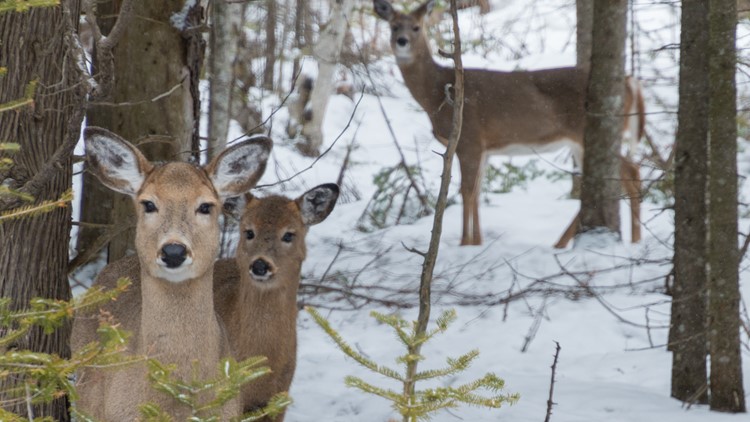Scientists concerned about white-tailed deer contracting SARS-CoV-2 hope to test more deer in Wisconsin as research shows the animal is highly susceptible to the virus.
While the exploration is new, experts have not been able to prove that the virus sickens deer or can be transmitted from deer to humans, Milwaukee Journal Sentinel reports.
In a study conducted by various scientists published Nov. 1, 94 out of 283 deer, or 33 percent, tested positive for SARS-CoV-2 in Iowa.
The researchers found that the white-tailed deer likely contracted the virus from human interactions and then spread it to their deer counterparts.
Scientists say the findings pose "worrisome implications for the spread of the coronavirus, although they were not able to identify the deer might have contracted the virus from humans," The New York Times reports.
To continue adding to the findings reported in Iowa and also in white-tailed deer in Ohio, the USDA's Animal and Plant Inspection Service is working to increase more testing among deer in other states, like Wisconsin.
Scientists are looking to see how far the virus expands throughout the white-tail population in the United States. They also hope to determine if new variants can develop and further spread to other animals, public affairs officer with USDA's National Wildlife Research Center in Fort Collins, Colorado, Gail Kern told the online news source.
The Wisconsin Department of Natural Resources also plans on joining in the research project.
The heightened awareness for white-tailed deers and their susceptibility to SARS-CoV-2 comes as the annual Wisconsin gun deer season opens Nov. 20.
At this time, there is no evidence that animals are impacting the spread of SARS-CoV-2, APHIS officials say.



